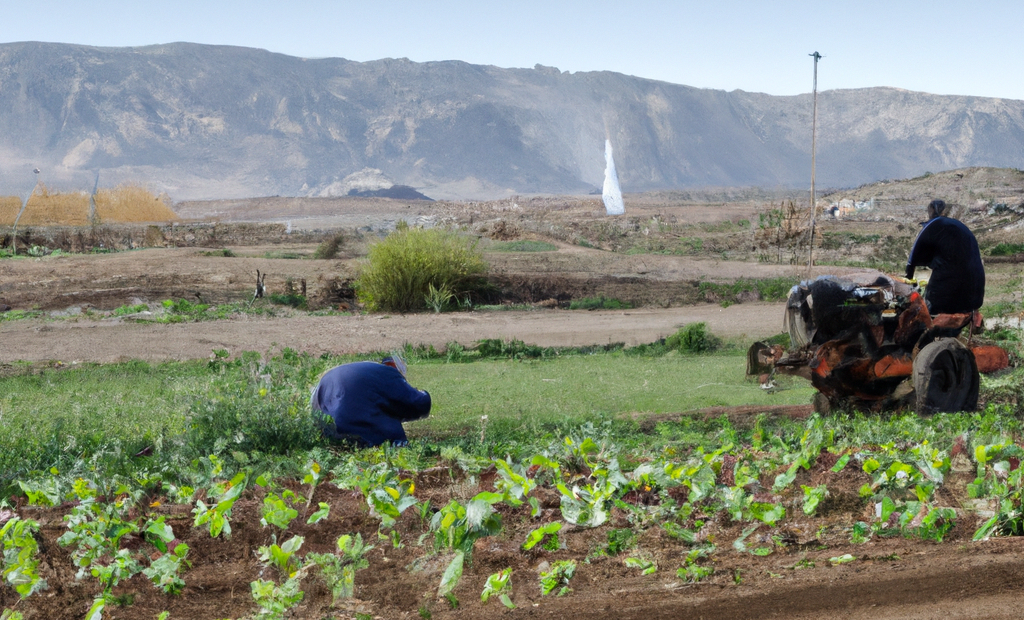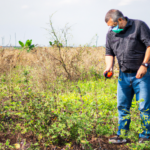The sections discuss the adaptation of agriculture in Murcia to its Mediterranean climate, highlighting the shift toward organic farming and the use of biofertilizers and other agricultural products. Biofertilizers, a sustainable alternative to chemical fertilizers, improve soil health and crop productivity without harming the environment. The importance of careful soil nutrient management is emphasized, and innovative cultivation and water management techniques are discussed.
The Mediterranean climate, characterized by mild winters, hot summers, and moderate rainfall, plays a crucial role in agriculture in Murcia. Its influence can be seen in the use of fertilizers, the adoption of organic farming, the use of biofertilizers, and the selection of agricultural products. This article comprehensively explores the impact of the Mediterranean climate on the agricultural sector in this Spanish region, placing particular emphasis on how farmers have adapted their practices and techniques to take full advantage of the climatic conditions. Each section focuses on a specific aspect, from fertilizer use to improving productivity with agricultural products, highlighting the importance of adaptability and innovation in such a dynamic and challenging environment as the Mediterranean climate.
- 1. "The influence of the Mediterranean climate on the use of fertilizers in Murcia's agriculture"
- 2. "Organic Agriculture in Murcia: Impact and Adaptation to the Mediterranean Climate"
- 3. "The use of biofertilizers in agriculture in Murcia under the Mediterranean climate"
- 4. "Agricultural Products in Murcia: Improving Productivity in a Mediterranean Climate."
1. "The influence of the Mediterranean climate on the use of fertilizers in Murcia's agriculture"
Murcia's Mediterranean climate, with its hot summers and mild winters, has a significant influence on the use of fertilizers in local agriculture. This climate favors the growth of a wide variety of fruits and vegetables, but also requires careful management of soil nutrients. In this context, fertilizers play a crucial role, helping to enrich the soil and maximize crop productivity. However, more and more farmers in Murcia are turning toward organic farming, which involves the use of biofertilizers and other products for more sustainable agriculture. These biofertilizers are made from organic materials that nourish the soil without harming the environment—an important advantage in a region where the conservation of natural resources is a key concern.
2. "Organic Agriculture in Murcia: Impact and Adaptation to the Mediterranean Climate"
Organic farming in Murcia has taken on a significant role in recent years, impressively adapting to the region's Mediterranean climate. The use of fertilizers and chemicals in agriculture has decreased significantly, being replaced by biofertilizers and other natural agricultural products. This transition has not only proven beneficial for the environment but has also had a positive impact on consumer health and the quality of agricultural products. Adaptation to the Mediterranean climate has involved the implementation of innovative cultivation and water management techniques designed to maximize efficiency in what can be challenging climatic conditions. Despite these challenges, organic farming in Murcia has proven to be resilient, productive, and a viable option for a sustainable future.
3. "The use of biofertilizers in agriculture in Murcia under the Mediterranean climate"
In the region of Murcia, where the Mediterranean climate prevails, the use of biofertilizers in organic farming has become increasingly important. Biofertilizers, a natural and sustainable alternative to traditional chemical fertilizers, are proving to be an effective tool for improving soil health and crop productivity in this region. Produced from living organisms, these agricultural products provide essential nutrients to the soil, improve its structure, and increase its water retention capacity, which is especially beneficial in the dry and hot Mediterranean climate. Furthermore, biofertilizers help reduce Murcia's farmers' dependence on synthetic fertilizers, contributing to a more sustainable and environmentally friendly agriculture.
4. "Agricultural Products in Murcia: Improving Productivity in a Mediterranean Climate."
Murcia's Mediterranean climate, characterized by hot summers and mild winters, presents unique challenges and opportunities for agriculture. However, several agricultural products have been developed that allow Murcian farmers to improve the productivity and sustainability of their crops. Fertilizers are essential for nourishing plants and improving soil quality, but the current trend is toward organic farming, which promotes the use of biofertilizers. These products, which are of natural origin and do not contain harmful chemicals, not only help improve productivity but also preserve the health of the soil and the environment in general. Thus, in Murcia, the combination of a Mediterranean climate, organic farming techniques, and the use of biofertilizers and other agricultural products are resulting in a more productive and sustainable agriculture.
The Mediterranean climate has proven to have a significant impact on agriculture in Murcia, dictating both the choice of crops and the techniques used for their cultivation. The use of fertilizers and biofertilizers has become an essential practice for improving crop productivity in this climate. However, there has been growing interest in organic farming, which effectively adapts to Mediterranean conditions and promotes a more sustainable and environmentally friendly approach.
It is important to highlight that the variety and quality of agricultural products available in Murcia have allowed farmers to optimize their yields and adapt to climatic constraints. In short, the Mediterranean climate, despite its challenges, has positively influenced the development and diversification of agriculture in Murcia, fostering innovation and sustainability in the sector.

